Good stories make people cry
We publish Vocal Fridays every week, straight to your inbox.
Subscribe below to get it straight outta the frying pan!
Digital producer Emily Latimer here, subbing in for Michal. This week’s newsletter was written from my perch in Cape Breton Island where I live with my three kittens. If you’ve never been, it was voted by readers of Condé Nast Traveler as the best island in North America. Kinda cool. It’s also home to the world’s largest fiddle (not sure why) and a booming local music scene. Come visit once the plague is over!
This week, in true Cape Breton fashion, I ate lobsters on the patio overlooking the Bras d’Or Lakes until the mosquitoes drove us into the tiny bungalow we lovingly call the Shack. My parents, aunts, and uncles did a toast to family, and then told stories that I’ve heard millions of times (like the time my dad *allegedly* saw a UFO in the 80s, and the other time my aunt caught a chinchilla that was loose onboard an aircraft.)
Cape Bretoners are known for spinning a tale or two. When I was seven, I was put to bed without dessert at a Brownie’s sleepaway camp for telling a ghost story that was too scary. Admittedly, I watched way too many episodes of Freaky Stories and Are You Afraid of the Dark? and I tried to scare the bejesus out of my fellow campers and make them cry, so fair enough. This week in the Big Fry, I want to use my soapbox to talk about the foundation of all great podcasts: Storytelling.
Last week Katie and I were talking about what makes a good podcast, and we decided that it really comes down to storytelling. Even if you’re producing a conversational podcast, there still needs to be a compelling thread that the listener can follow through the question line.
But how do you find a story worth telling? Katie starts off with a ton of research, reading far and wide on the subject matter that initially piqued her interest. Once she’s got a grasp on what’s already out there, she tries to find a new angle, draw interesting connections, and figure out how to make it intriguing to an audience. Don’t underestimate the legwork you have to do upfront, before you ever set out with your Zoom recorder. Also, even if the story has been told a million times, see it as a fun opportunity to challenge yourself to come up with a surprising takeaway, unexpected character, or a satisfying plot twist.
Some people are just good at finding great story ideas. Case in point: This American Life alum Stephanie Foo. Pacific Content wrote about Foo’s expert ability to find and pitch stories. The veteran audio storyteller says that if the perfect story already exists in your imagination, then it probably exists in real life. She “Foogles” it, and asks her search engine for whatever pops into her head. Typing “crazy story” + “abduction” into Texas news sites resulted in a remarkable story about a man held hostage in his home. She says looking for story ideas is like writing FAN FICTION! Mind. Blown. They didn’t teach me that trick in journalism school!
In fact, in school I learned about the very familiar 5 W’s—Who, What, When, Where, Why. Honestly, these are so boring. The 5 W’s are out. Foo uses the 5 C’s as the building blocks of a great story—Conflict, Characters, Consequences, Complexity and Change. The C prompts feel more exciting and makes you think harder about how to piece together the story, rather than simply answering questions usually found on a standardized form.
Search for tension, surprise, reflection, and meaning as well. Foo says what drives the conflict is probably the thing you should spend the most time thinking about. If there’s no conflict, no stakes, and no one actually cares... then there’s probably no story. I like to pretend that I have to explain my story idea to a friend and really draw them in. If they don’t care, either the story idea is no bueno, or you need new friends.
Which brings me to my next point: your story can fall flat if you haven’t found the right character yet. Sometimes a hero interview doesn’t turn out the way you imagined, or a source doesn’t say what you expected. You want a character who can tell their own story well, whether it’s quirky, astonishing, pensive, or foreboding. It’s okay to keep searching until you find the right person. I sound like Match.com… but DON’T SETTLE! Do they have a good voice? Are they a good talker? Does it make you feel something? Do you care? These are questions you should be asking yourself when you’re sitting in front of a pile of tape.
Life doesn’t happen narratively. Storytelling is an art and a craft. As a storyteller, it’s your job to think up story beats and plot it out for your audience. Find the conflict, find the emotion, find the setting, find the people, find the emotion! You got this! And then send me the story once it’s done. Would love to read it.
Back to school time is right around the corner, and that means X’s School of Journalism is looking for a LOT of teaching assistants. You have to be enrolled as a fourth year Ryerson student or above to qualify. Here are some of the courses that need assistants: intro to radio and podcasting, producing journalism, news media and the gig economy, data journalism, ethics and law, critical issues in journalism, how journalism matters, intro to news studies, newsroom masthead, designing journalism, approaches and techniques for journalists, and feature reporting workshop. Click through to see the details for each job, which run from September 1 to December 31.
Stitcher is hiring a podcast producer for For Colored Nerds! They’re looking for a producer who is excited about making culturally-relevant content, and applicants are asked to submit a pitch for an episode where you cast a familiar piece of Black culture in a new light.
Filed under ‘International Opportunities’: The New York Times Audio team is looking for a host/producer. It says they’re “building on the success and journalism of The Daily to bring more of our newsroom reporting to air everyday. The Host/Producer will serve in a leading role as we explore a new format for audio news.” Sounds cool and kinda mysterious.
CBC Nunavut is looking for people who are interested in developing a journalistic career. It’s a candidate bank posting, so they’re looking for VJs, reporters, announcers, and producers who can file stories in both Inuktitut and English. If you’re interested in working with their team, send a cover letter and resume to NorthCareers@cbc.ca.
The Logic is hiring an Alberta correspondent to expand their coverage of the innovation economy. It’s a full-time staff job with a competitive salary and full benefits! Candidates are ideally based in or within commuting distance of Calgary or Edmonton. Applications are due end of day on August 22. Not sure you’re qualified? They encourage you to apply anyway.
Metroland is seeking a managing editor to oversee editorial operations in Toronto, which includes Etobicoke Guardian, North York Mirror, Scarborough Mirror newspapers, as well as Toronto.com. Sounds like a big job!
Narcity.com is looking for a staff writer who loves Toronto that can cover everything from local politics to real estate to restaurants. It’s a full time position open to candidates in Toronto. It sounds like a fast-paced, deadline driven journo would be well-suited to the role.
CityNews Edmonton is looking for a video journalist to fill a full-time or part-time position.
French-speaking journos! Bell Canada is hiring a full-time investigative journalist for their TV network Noovo in Montreal. Deadline to apply: August 15.
Want to brush up on some skills? BBC Sounds Audio Lab has a series of virtual podcast Masterclasses available for free! There are three sessions live now: how to be a great interviewer, how to bring your podcast to life with sound, and exploring different ways to tell a story. Plus two more sessions upcoming on Wednesday nights in August. Register here.
Want some money? Podfund provides startup and growth capital to help podcast businesses and audio ventures. They typically provide funding between $25,000 and $150,000 to podcast studios and other creators. Creators worldwide are encouraged to apply for funding.
Producer Ren Bangert has been listening to Short Cuts from BBC, a soundscape-based show that explores storytelling through sound more than through a spoken narrative. Ren loves all things that have to do with soundscape and experimental sounds, and she sees Short Cuts as a great tribute to the slow radio tradition.
“Storytelling with sound is a great space to be artistic, and it’s very emotionally gripping—you can invoke intense emotions in a listener without using any kind of standardized structure,” they told me. As a tarot reader, Ren is partial to their episode inspired by the tarot deck. Get into it!
We have two new blog posts that are both informative and fun!
PR pro Sabina Wex writes about how to get celebrities on your podcast from the lens of an indie podcaster.
I wrote about the hidden costs of making a podcast and broke down some fixed and variable production costs.
Architect Anthony Fieldman is on this week’s episode of Building Good!
His broader, holistic approach to architecture makes him the perfect guest to speak on the nature of creativity and architecture’s potential as a force for good.
We want to hear from you! What are you looking for in your podcast news? Let us know on Twitter, Instagram, or by email at info@vocalfrystudios.com. Thanks to Katie Jensen for designing this newsletter.
We’ll see you again on August 20. Until then, here’s an update from a bunny that Michal saw.
Yours in friends and fries,
Emily














